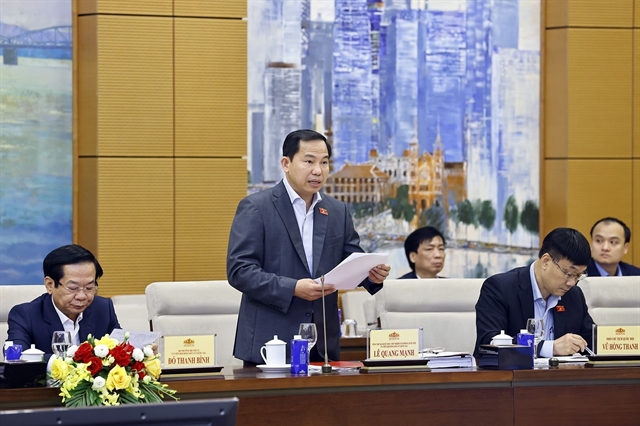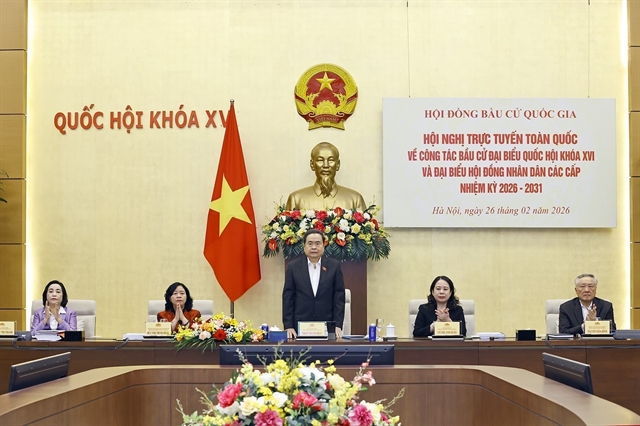 Media-OutReach Newswire
Media-OutReach Newswire

SHANHAI, CHINA - Media OutReach - 26 January 2021 - Pandemic outbreak (#1 with 36% responses) rises sixspots to be the top business risk in China, the epicentre of Covid-19, in the 10thAllianz Risk Barometer 2021. Business interruptiondrops one position (#2 with 33% responses), reflecting the potential disruptionand loss scenarios companies are facing in the wake of the Covid-19 pandemic,while Changes in legislation and regulation jumps seven positions to tiewith business interruption (#3 with 33% responses).
The annual surveyon globalbusiness risks from Allianz Global Corporate & Specialty (AGCS)incorporates the views of 2,769 experts in 92 countries and territories, includingCEOs, risk managers, brokers and insurance experts.
Globally, Business interruption (#1 with 41% responses) and Pandemic outbreak (#2 with 40%) are this year's top businessrisks with Cyber incidents (#3 with 40%) ranking a close third, making ita trio of Covid-19 related risks.
"The Allianz RiskBarometer 2021 is clearly dominated by the Covid-19 trio of risks. Businessinterruption, pandemic and cyber are strongly interlinked, demonstrating thegrowing vulnerabilities of our highly globalized and connected world," saysJoachim Müller, CEO of AGCS. "The coronavirus pandemic is a reminder that riskmanagement and business continuity management need to further evolve in orderto help businesses prepare for, and survive, extreme events. While the pandemiccontinues to have a firm grip on countries around the world, we also have toready ourselves for more frequent extreme scenarios, such as a global-scalecloud outage or cyber-attack, natural disasters driven by climate change oreven another disease outbreak."
The Covid-19 crisiscontinues to represent an immediate threat to both individual safety andbusinesses, reflecting why pandemic outbreak has rocketed 15 positions up to #2in the global rankings at the expense of other risks. Prior to 2021, it hadnever finished higher than #16 in 10 years of the Allianz Risk Barometer, aclearly underestimated risk. However, in 2021, it's the number one risk in 16countries and among the three biggest risks across all continents and in 35 outof the 38 countries which qualify for a top 10 risks analysis. Japan, SouthKorea and Ghana are the only exceptions. China is the only country in AsiaPacific where Pandemic outbreak is not a new risk as it was ranked #7 in 2020.
Top Asia Pacific Risks
Similar to the global results, Cyber incidents (#1 with41% responses), Pandemic outbreak(#2 with 39%) and Businessinterruption (#3 with 38%) skyrocketed to the top three business risks inAsia Pacific followed by Natural catastrophes (#4 with 27% ) rounding out the key issues in the region.
Asexpected, Changes in legislation and regulation (#5 with 22%) also keptits place amongst the top five Asia Pacific risks in 2021 for the thirdconsecutive year. This was largely due to the several elections and change inleaderships that took place across the region in Singapore, Taiwan, Indonesia,South Korea and Malaysia, as well as the broader implications on supply chainsas a result of China's trade wars and greater uncertainty brought on bygovernments introducing tough lock down measures.
Commentingon the Asia Pacific results Mark Mitchell, AGCS APAC Managing Director, said:"The Pandemic has demonstrated just how vulnerable the world and businesseshave become to unpredictable multi-country events and this has forever changedthe risk landscape for clients and society more generally. The COVID-19pandemic has not only changed our society, but has also fundamentally changedthe way businesses operate, especially the acceleration towards greaterdigitalisation driven by more companies working remotely. Our hope is thatbusinesses and clients can learn from their experiences in 2020 and make surethey have in place measures which will reduce the impact of similar events inthe future."

|
Top China Risks
In China, it's no surprise that Pandemic outbreak topped the list asChina was the epicentre of Covid-19 where the virus was first detected at theend of 2019. Business interruptionis a close second as individual companies and even entire sectors sufferedlarge business interruption events during the nationwide lockdown as a resultof the pandemic and it's the largest catastrophic event to hit a modern,globalised and interconnected economy.
In response to heightened BI vulnerabilities, many companies are aimingto build more resilient operations and to de-risk their supply chains.According to Allianz Risk Barometer respondents, improving business continuitymanagement is the main action companies are taking (62%), followed bydeveloping alternative or multiple suppliers (45%), investing in digital supplychains (32%) and improved supplier selection and auditing (31%). According toAGCS experts, many companies found their plans where quickly overwhelmed by thepace of the pandemic. Business continuity planning needs to become moreholistic, cross-functional, and dynamic, monitor and measure emerging orextreme loss scenarios, be constantly updated and tested and embedded into anorganization's strategy.
Changes in legislation and regulation jumps seven positions to tie with business interruption as tradewars and tariffs intensify amidst growing economic sanctions and protectionism. In the last two years, the proportionof Chinese exports to the US subjected to additional tariffs has soared from anearly insignificant share to over 70%. And the share of US exports to Chinasubject to tariffs has skyrocketed, from 2% in February 2018 to more than 50%two years later.
Market developments ranks fourthin both the China (29%) and Global (19%) rankings reflecting the risk of risinginsolvency rates following the pandemic worldwide. According to Euler Hermes, a trade creditinsurance subsidiary of the Allianz Group, there are two clusters of countries, thosethat will see a stronger rise in insolvencies in 2020, and those that will seea delayed surge in 2021. The bulk of insolvencies will come in 2021 as Euler Hermes' global insolvency index is expected to hit a record high forbankruptcies, up 35% by the end of 2021, with top increases expected in the US,(up 57% by 2021, compared to 2019), Brazil (up45%), China (up 40%) and core European countries such as the UK (up 43%), Spain(up 41%), Italy (up 27%), Belgium (up 26%) and France (up 25%).
Most Asia Pacificcountries are in the first group (China, Japan, South Korea, Taiwan, Hong Kongand New Zealand, with India as key exception) mainly because they were thefirst to be impacted by the Covid-19 outbreak. The earlier economic recovery ofthe region will help limit the rise in insolvencies for 2020, but the stricterand/or longer lockdown measures will also cap the recovery and keepcompanies under pressure up to 2021, when the region will see another rise ininsolvencies. China tops the list and it is followed by Singapore (+39%), HongKong (+23%), Japan (+13%) and Australia (+11%).
Patrick Zeng, CEOof Hong Kong & Greater China & Regional Director of Distribution forAGCS said: "The silver lining to the pandemic and the economic challenges thatfollow is that it will likely spark a period of innovation and marketdisruption. We anticipate the accelerating adoption of technology, hasteningthe demise of incumbents and traditional sectors, giving rise and opportunitiesto new companies and the way business is done. As a leading partner in riskmanagement we look forward to strengthening our business relationships andfacilitating this transformation."

|
More information on the findings of theAllianz Risk Barometer 2021 is available here:
AllianzGlobal Corporate & Specialty (AGCS) SE is a leading global corporateinsurance carrier and a key business unit of Allianz Group. We provide risk consultancy, Property-Casualty insurance solutions and alternative risktransfer for a wide spectrum of commercial, corporate and specialtyrisks across 10 dedicated lines of business.
Ourcustomers are as diverse as business can be, ranging from Fortune Global 500companies to small businesses, and private individuals. Among them are not onlythe world's largest consumer brands, tech companies and the global aviation andshipping industry, but also wineries, satellite operators or Hollywood filmproductions. They all look to AGCS for smart answers to their largest and mostcomplex risks in a dynamic, multinational business environment and trust us todeliver an outstanding claims experience.
Worldwide,AGCS operates with its own teams in 31 countries and throughthe Allianz Group network and partners in over 200 countries and territories,employing over 4,450 people. As one of the largest Property-Casualty units of AllianzGroup, we are backed by strong and stable financial ratings. In 2019,AGCS generated a total of €9.1 billion gross premium globally.
|
|
|
|
Cautionary Note Regarding Forward-LookingStatements
Thestatements contained herein may include statements of future expectations andother forward-looking statements that are based on management's current viewsand assumptions and involve known and unknown risks and uncertainties thatcould cause actual results, performance or events to differ materially fromthose expressed or implied in such statements. In addition to statements whichare forward-looking by reason of context, the words "may","will", "should", "expects", "plans","intends", "anticipates", "believes","estimates", "predicts", "potential", or"continue" and similar expressions identify forward-lookingstatements.
Actualresults, performance or events may differ materially from those in suchstatements due to, without limitation, (i) general economic conditions,including in particular economic conditions in the Allianz Group's corebusiness and core markets, (ii) performance of financial markets, includingemerging markets, and including market volatility, liquidity and credit events (iii)the frequency and severity of insured loss events, including from naturalcatastrophes and including the development of loss expenses, (iv) mortality andmorbidity levels and trends, (v) persistency levels, (vi) the extent of creditdefaults, (vii) interest rate levels, (viii) currency exchange rates includingthe Euro/U.S. Dollar exchange rate, (ix) changing levels of competition, (x)changes in laws and regulations, including monetary convergence and theEuropean Monetary Union, (xi) changes in the policies of central banks and/orforeign governments, (xii) the impact of acquisitions, including relatedintegration issues, (xiii) reorganization measures, and (xiv) generalcompetitive factors, in each case on a local, regional, national and/or globalbasis. Many of these factors may be more likely to occur, or more pronounced,as a result of terrorist activities and their consequences.
Thematters discussed herein may also be affected by risks and uncertaintiesdescribed from time to time in Allianz SE's filings with the U.S. Securitiesand Exchange Commission. The company assumes no obligation to update anyforward-looking statement.




